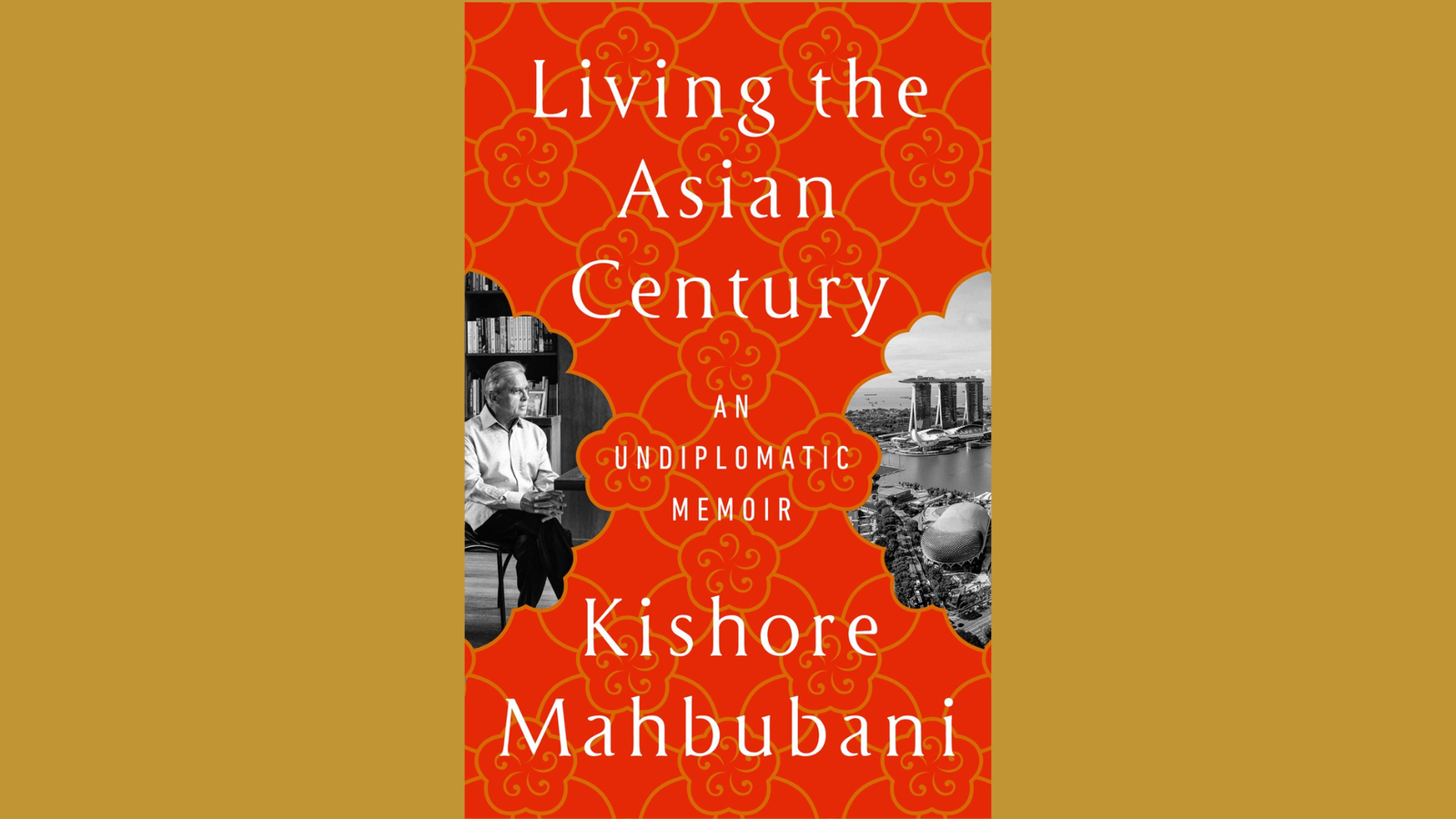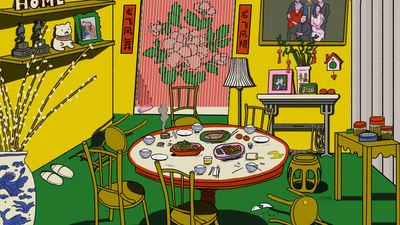“Undiplomatic” is not a word I would associate with Kishore Mahbubani. In a conversation with Sumiko Tan of The Straits Times about his memoir, he projects a calm and friendly demeanour, even as he warns that the next 10 years in US-China relations will be more dangerous than ever. Yet, Mahbubani has titled his memoir Living the Asian Century: An Undiplomatic Memoir, and through this, has invited us to consider what it would mean for a memoir, a career diplomat, and a private individual, to be undiplomatic.
It could be in the way he’s not afraid to criticise colonialism and Western imperialism—not insignificant in a country that remains deep in the haze of its decades-long colonial hangover. (Did we really need a third public statue of Stamford Raffles?)
“Blame it all on the damn British,” Mahbubani writes in the first chapter. By no means a radical thought now, it is refreshing nonetheless to see a member of the establishment address the detrimental effects of British colonialism with such frankness. Mahbubani was Singapore’s permanent representative to the UN twice, during which time he also briefly held the role of president of the UN Security Council. Following his diplomatic career, he became the founding dean of the Lee Kuan Yew School of Public Policy (LKYSPP), from 2004 until 2017, when he abruptly stepped down.
Mahbubani admits he grew up believing that Asians were “inherently inferior” to white people. That the myth of white superiority (and the “lazy native”) was concocted for our coloniser’s benefit is well-established, though it isn’t often that someone of Mahbubani’s standing is willing to concede that they had ever believed in it. In contrast, at a closed-door panel commemorating the Bicentennial of 2019, Tommy Koh, ambassador-at-large and another foreign service doyen of that era, remarked that colonialism in Singapore was about 60 percent good and 40 percent bad, something that made my peers and I baulk. Mahbubani’s undiplomatic musing may provide cover for others in the system to engage in more introspection on colonialism.
Mahbubani also pulls back the curtain on some of the pertinent negotiations he was part of during his time representing Singapore at the UN, revealing the unvarnished reality of being a small nation in the big leagues. He singles out Richard Holbrooke, the US Ambassador to the UN from 1999 to 2001, for attempting to persuade smaller African states, and anyone else who would listen, to pressure Singapore into increasing its contributions to the UN, while the US sought to decrease its own due to domestic political pressures.
If “undiplomatic” means being tactless and blunt, to the point of rudeness, then Mahbubani has some way to go in delivering on that promise. Where he does critique the West, as he’s wont to do, he doesn’t mince his words. However, it’s nothing extremely inflammatory or out of character for someone whose detractors often label him “pro-China”.
Indeed, there are glaring missed opportunities. A memoir reflecting on his decades-long, illustrious career in the foreign service would have been the perfect place to set the record straight on some contentious episodes, but readers won’t find that here. Absent are Mahbubani’s controversial remarks in 2017 that small states like Singapore should behave like small states, which attracted the ire of many figures in the establishment. Fellow diplomat Bilahari Kausikan lambasted Mahbubani as being “muddled, mendacious and indeed dangerous”, which is more undiplomatic, in and of itself, than most of Mahbubani’s memoir.
Mahbubani is also noticeably silent on the Huang Jing saga that exploded in the same year, where the prominent LKYSPP professor had his permanent residency revoked after the Ministry of Home Affairs accused him of working for foreign intelligence organisations. Soon after those two events, Mahbubani stepped down as dean, supposedly to “take a fresh look” at what he wished to achieve in his seventies. Perfect timing.
These were, and still are, sensitive events, and their omission will leave more critical and inquisitive readers questioning Mahbubani’s intent for doing so.
If we were, perhaps, to think of undiplomatic more generally as insensitive, or perhaps, a lack of tact, there’s a lot more to point out. For instance, in his closing chapter, Mahbubani expresses joy and gratitude “to have been a pioneer in this great Asian renaissance.” Odd. It seems to me that “pioneer” is usually an accolade bestowed upon someone, rather than a title one confers on themselves. If this memoir is the first piece of writing you’re reading from Mahbubani, you’d also be hard-pressed to figure out how he pioneered Asia’s rise, as there are far more prominent leaders in this part of the world.
Separately, he briefly compares himself to Barack Obama, as men who were raised by single mothers. He makes a point of stating that he did not dream of being president nor had Obama’s audacity of hope, but managed to exceed his early ambition of becoming a philosophy teacher more than he imagined.
Singaporeans crave tales of supposed self-made success, of people who have risen dramatically from their humble beginnings—microcosms of our young nation. It’s clearly the case for Mahbubani. Leaving behind an alcoholic husband, Mahbubani’s late mother single-handedly raised her four children on government aid, cheques from her brothers in Guyana and Suriname, and ostensibly whatever money she could cobble together to keep the family afloat. Mahbubani’s life is impressive on its own, without the need for him to draw opportunistic parallels with Obama.
In moments like these he crosses the line between confidence and arrogance.
It’s for all these reasons that the book is interesting. Certainly, there are moments that Mahbubani could have displayed more introspection, such as when he reflects on the challenges of working in the Ministry of Foreign Affairs, and the toll that might have taken on his health and relationships. It is definitely not an easy job. I left after barely seven months, with several other batchmates following suit, even before their first overseas posting, and I would have appreciated a deeper reflection on the working conditions in the “twenty-four seven” ministry.
The omission of critical events in his career, and the perfunctory treatment of his 13-year stint as the dean of LKYSPP, are glaring holes in the narrative. We might be disappointed, as readers of memoirs who expect “secrets, for complete transparency on the part of the author, as if the point is confession, and the process of reading a memoir, a voyeuristic one,” in the words of Dani Shapiro, in an essay about the art of memoir writing. That’s not inherently a bad thing, for a memoir is often positioned as a tell-all, and in Mahbubani’s case, readers will be expecting something bold and uncensored, given its title.
Unfortunately, his understanding of this term is a bit anachronistic—not unlike the erecting of Raffles the Third in an age where many nations are tearing down statues of their former colonisers and oppressive rulers. Mahbubani’s critiques of the West makes him stand out from his fellow septuagenarian peers, who experienced colonial rule and internalised, to varying degrees, the belief that anything Western was inherently superior. Now, in the age of social media, where passionate discourse is par for the course, and where youths are critically engaging in complex geopolitical issues like Israel’s war on Gaza, Mahbubani’s approach to being undiplomatic is underwhelming.
That said, what to write and what to omit in a memoir are conscious choices. As Shapiro notes, complete transparency is not always a given. In writing her own memoir, Shapiro shares that, “[i]n fact, I’m building an edifice. Stone by stone, I am constructing a story.” Far be it from me, or anyone else for that matter, to dictate how much of their soul a writer should bare on the page. At the end, Mahbubani’s narrative choices vindicate his successful, perhaps enviable, career by many measures, one built from sheer hard work and tenacity. At the same time, they also reveal a man whose stature has led to an occasionally misplaced sense of self-importance.
Cherry is a communications professional and freelance writer who has contributed to various local publications. In her free time, she shares her love of books through thoughtful reviews on Instagram, where she runs the account @cherryreadsbooks. Her Instagram handle is @cherryreadsbooks.
Letters in response to this review can be sent to sudhir@jom.media. All will be considered for publication on our “Letters to the editor” page.
Living the Asian Century: An Undiplomatic Memoir is available at Kinokuniya and Amazon, among others places.






